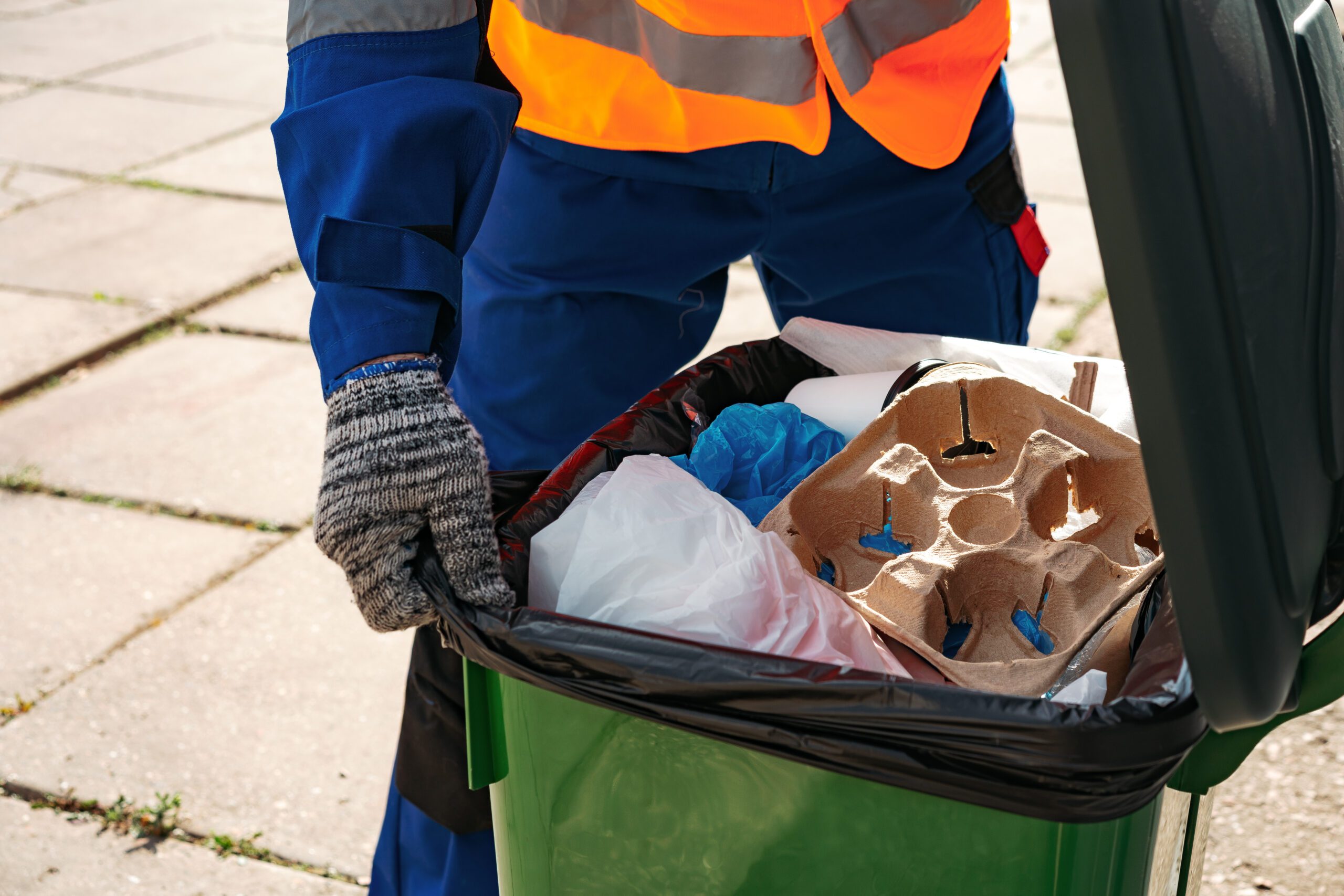In the modern world, where consumption is at an all-time high and waste generation continues to rise year after year, the need for responsible and structured waste management has become more urgent than ever. Every day, tons of garbage are produced by households, businesses, industries, and institutions. Without a proper system in place to handle this waste, cities and towns would quickly become overwhelmed with pollution, health hazards, and environmental damage. This is why a garbage collection service is a crucial component of maintaining public health, cleanliness, and ecological balance.
As waste becomes more complex in composition—from biodegradable food scraps to hazardous electronic components—effective garbage collection services must adapt and evolve. This article will examine the critical function of professional waste collection systems, explore how these services operate, and highlight the environmental, social, and economic benefits they provide. We’ll also look at the challenges facing the industry and what the future might hold as societies work toward more sustainable waste solutions.
The Growing Need for Waste Management in a Consumer Society
One of the byproducts of economic development is the increase in consumerism, which directly correlates with rising waste levels. Packaging, single-use items, outdated electronics, and fast fashion contribute heavily to what ends up in landfills. When waste is not collected and disposed of properly, it doesn’t just create visual pollution—it can also leach toxins into the soil and water, attract disease-carrying pests, and increase greenhouse gas emissions.
A professional garbage collection service acts as the frontline defense in managing this growing issue. These services ensure that waste is systematically removed from homes and businesses, sorted where necessary, and delivered to appropriate treatment or disposal facilities. Their role is not just logistical but environmental and social, making them an essential part of urban and rural infrastructure.
Components of an Effective Waste Collection System
An efficient garbage collection system is much more than just trucks picking up trash. It consists of a carefully coordinated series of processes, each designed to ensure that waste is handled in a way that minimizes harm to people and the environment.
Collection
At the most basic level, the system begins with scheduled pickups of household and commercial waste. Different types of waste may be collected separately—general trash, recyclables, organic waste, and hazardous materials. This initial step is critical for streamlining the rest of the process.
Transportation
Once collected, waste must be transported efficiently to treatment facilities. Collection trucks are often equipped with compacting mechanisms to reduce volume and are strategically routed to minimize fuel consumption and carbon emissions.
Segregation and Sorting
Some sorting may happen at the point of collection, but most of it is done at transfer stations or recycling centers. Materials like plastic, glass, paper, and metals are separated for recycling. Hazardous and electronic wastes are isolated for specialized treatment.
Disposal or Processing
What remains after recycling is sent to landfills or incinerators. In some regions, waste is used in waste-to-energy facilities that generate electricity. Organic waste may be composted or converted into biogas, further reducing the burden on landfills.
Each of these steps requires coordination, regulatory oversight, and public participation. Without a reliable garbage collection service, the entire process breaks down, leading to unmanaged waste and serious environmental consequences.
Environmental Impact of Waste and the Role of Collection Services
Improper waste disposal is one of the leading causes of environmental degradation. Plastics clog waterways, chemicals seep into the ground, and burning waste releases harmful pollutants into the atmosphere. A structured garbage collection system helps to mitigate these effects by ensuring waste is dealt with in a responsible manner.
Landfill Management
Modern landfills are engineered to contain waste safely, with liners and leachate treatment systems to prevent soil and groundwater contamination. Garbage collection services play a key role in ensuring that only non-recyclable, non-compostable waste ends up in these facilities.
Recycling Promotion
By offering separate collection for recyclables, garbage services reduce the volume of waste sent to landfills and encourage the reuse of valuable materials. This saves energy, reduces the need for raw material extraction, and cuts down on greenhouse gas emissions.
Composting and Organic Waste
Some services offer green bins or special pickups for organic waste, which can be composted into nutrient-rich soil or used to produce energy. This keeps food waste out of landfills where it would otherwise generate methane, a potent greenhouse gas.
The role of a garbage collection service goes far beyond convenience—it is a core environmental function that helps communities transition toward sustainability and resilience.
Health and Sanitation Benefits
Garbage that is not collected on time can quickly become a public health hazard. Rotting food attracts vermin and insects, overflowing bins lead to unsanitary conditions, and improperly disposed hazardous waste can cause chemical exposure or fires. Reliable garbage services ensure that these risks are minimized by keeping waste contained, collected, and treated regularly.
Regular garbage removal reduces the risk of diseases such as cholera, dysentery, and respiratory infections, which can spread through contaminated air and water. In densely populated areas, where people live in close quarters, this function is especially vital for protecting community health.
Economic and Social Contributions
While often overlooked, the waste management industry makes substantial economic contributions. It provides employment for millions of people globally—from collection drivers and recycling plant workers to logistics managers and environmental engineers. It also supports secondary industries such as recycling manufacturing, compost sales, and waste-to-energy production.
Moreover, clean, well-maintained communities attract businesses, tourism, and investment. No one wants to live or work in an area that is dirty or plagued with litter. A consistent and professional garbage collection service improves the quality of life, promotes civic pride, and enhances social well-being.
Common Challenges in the Waste Collection Industry
Despite its importance, the garbage collection industry is not without its challenges. These include:
Increasing Waste Volume
As populations grow and consumption habits change, the volume of waste being generated is rising rapidly. Existing infrastructure is struggling to keep up, leading to overfilled landfills and increased collection costs.
Illegal Dumping
To avoid fees or due to lack of access, some individuals and businesses resort to illegal dumping, which creates environmental and legal issues for local authorities and collection companies alike.
Public Apathy and Non-Compliance
One of the biggest hurdles is getting people to comply with sorting regulations or to follow schedules properly. Contaminated recyclables or hazardous items thrown into regular bins can derail the entire system.
Budget Constraints
Municipalities often operate under tight budgets, making it difficult to upgrade equipment, expand services, or invest in employee training and safety.
Technology and Innovation in Waste Collection
Technology is playing a growing role in making garbage collection more efficient and eco-friendly:
- Smart Bins equipped with sensors notify services when they are full, optimizing routes and reducing fuel consumption.
- GPS Routing Software ensures that trucks take the most efficient paths, saving time and reducing emissions.
- Automated Sorting at facilities improves the accuracy and speed of recycling operations.
- Mobile Apps allow residents to report missed pickups, illegal dumping, or schedule special collections, increasing community engagement and service responsiveness.
As technology continues to advance, so too will the effectiveness of garbage collection systems, helping them meet the needs of growing and changing populations.
The Role of Citizens in a Successful Waste System
While professional services are essential, individual responsibility also plays a major role. Proper sorting, timely bin placement, avoiding overfilling, and educating others about waste management practices are small steps that make a big difference when done collectively.
Awareness campaigns, school programs, and public service announcements help people understand why proper waste disposal matters. A culture of environmental responsibility is key to making waste collection systems work efficiently and sustainably.
Looking Ahead: The Future of Garbage Collection
The future of waste management is likely to be shaped by a few key trends:
- Sustainable Packaging: Reducing the amount of waste generated in the first place through eco-friendly packaging.
- Zero-Waste Policies: Some cities are aiming to eliminate landfill use entirely by focusing on reuse, recycling, and composting.
- Circular Economy Models: Treating waste as a resource rather than a burden.
- Decentralized Waste Treatment: Smaller, local processing units may reduce the need for long-distance transport and large landfills.
- Increased Automation: Robotics and AI will continue to streamline sorting and logistics.
As the world becomes more focused on sustainability, the demand for smarter and more environmentally friendly garbage solutions will grow, making the role of a garbage collection service even more indispensable.
Conclusion
Garbage is an inevitable part of life, but how we manage it defines the quality of our environment, our communities, and our health. A dependable garbage collection service is not just about picking up trash—it’s about creating a structured, sustainable, and socially responsible way to handle the byproducts of modern living.
From reducing pollution and conserving resources to enhancing public health and supporting economic growth, the benefits of organized waste management are far-reaching. As individuals, communities, and policymakers continue to tackle the growing challenges of waste, one thing is clear: investing in and supporting efficient garbage collection services is essential for a cleaner, safer, and more sustainable future.





























